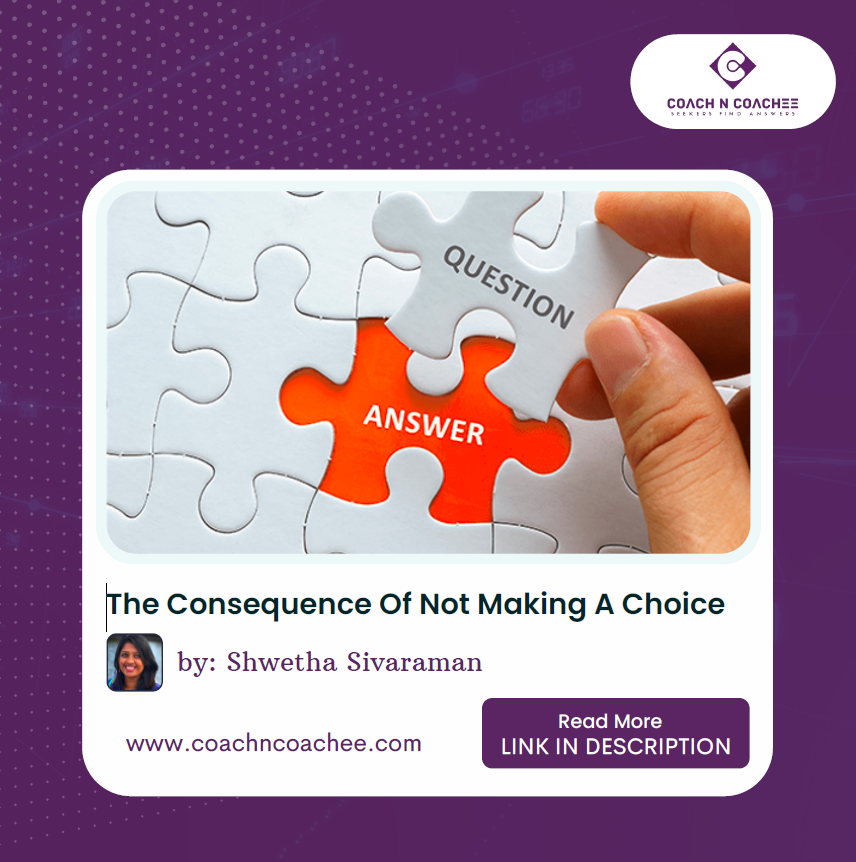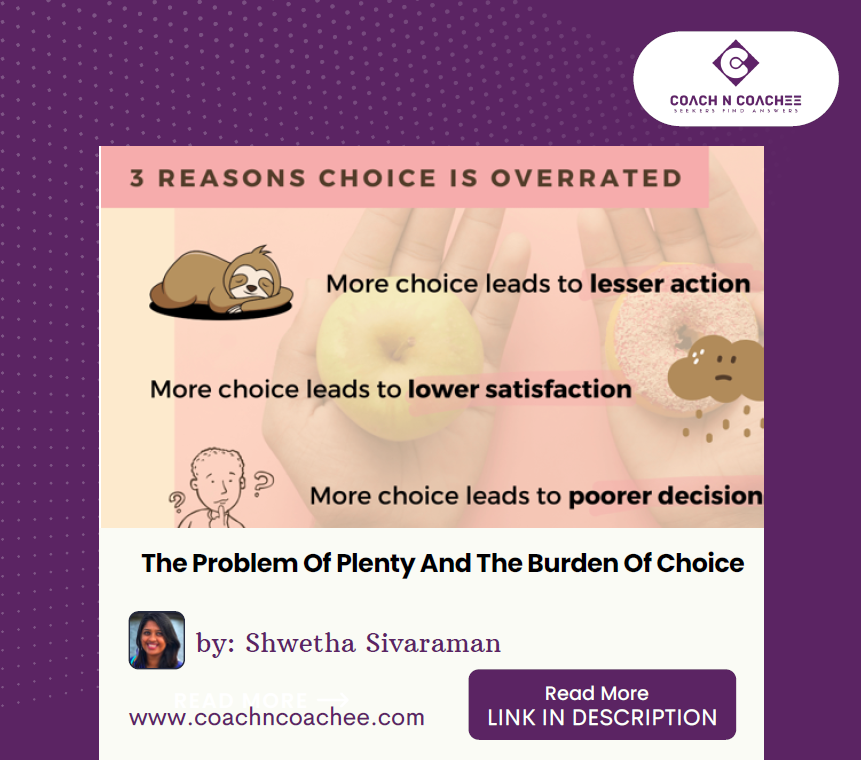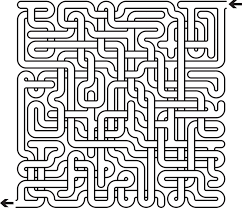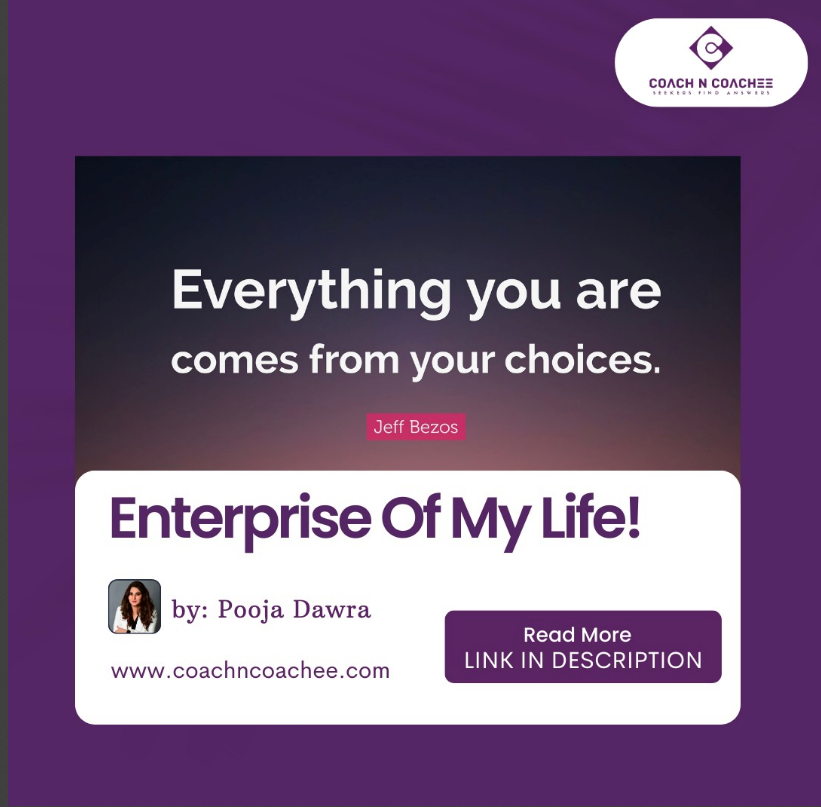
The Consequence Of Not Making a Choice
Not doing anything is a choice in itself.
You catch up with a friend after long, and the conversation goes somewhat like this.
“Gosh, I am so done with this job. Nothing is worth my peace of mind. I’m not learning anything. There’s no new challenge in the role, and don’t even get me started about my boss.”
If you’ve been friends long enough, this is probably not the first time you’ve had this conversation. In some cases, the vent might be ongoing for years with no change in reality.
We might be unhappy throughout, but we prefer sticking to our current undesirable status quo than move out or make amends.
The word status quo comes from the 1800s in Latin, which means “An unaltered condition.”
A recent study proves that “individuals adhere to existing states (“status quo bias”) and value them more.”
And, I couldn’t help but wonder why do we humans love the status quo?
Here are a few of my hypothesis
Predictability over uncertainty
We are creatures of habit continuously seeking comfort and predictability. While what we have in our hands may not be the best hand of cards, we prefer to stick with it rather than trade it in for something ambiguous, doubtful, or unknown.
We might complain, vent, and cry it’s unfair. But given a choice, we’d always choose predictability over uncertainty.
Loss aversion over possible gains
Our survival brain, over years of evolution, seeks to avoid loss at all costs. As a result, we can tolerate discomfort but cannot face or confront loss.
In the “prospect theory,” researchers Daniel Kahneman and Amos Tversky discovered that “losses loom larger than gains.” This is because our minds tend to focus on the probable losses rather than what we stand to gain. So, we prefer holding on to the thorns that keep us bleeding than explore letting that rosebud go to avert any possible loss.
Auto-pilot over intentional
Most of our lives have happened on auto-pilot. We go with the flow 90% or 99% of the time. We might take a conscious stand against a few aspects of life, but we mostly cruise through life without making intentional choices.
One decision leads to another without us ever pausing to reflect if we are in the right direction. And after a threshold, the inertia takes over, leaving us with little energy to make change happen in our lives.
But what we need to realize is that not doing anything is a decision in itself. By not deciding to change something in our lives, we are passively choosing the status quo.
And unlike our minds makes us believe, the status quo is not a no-loss zone.
Instead, there is a hidden price to selecting the status quo, an opportunity cost of what could have been.
The next time you catch yourself complaining, dig in deeper and honestly ask yourself, “10 years from now, what would be the price of not making a conscious shift today?”










